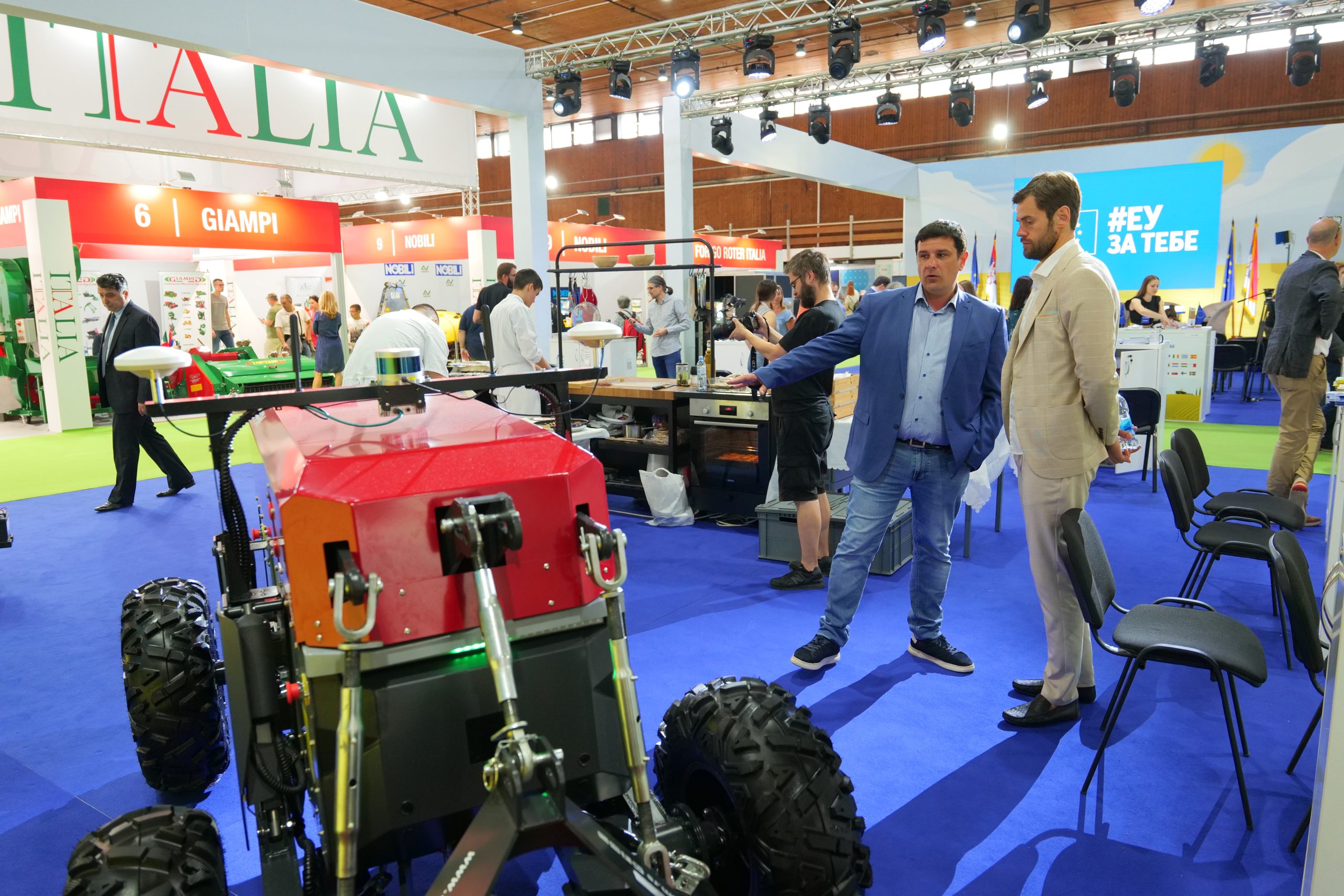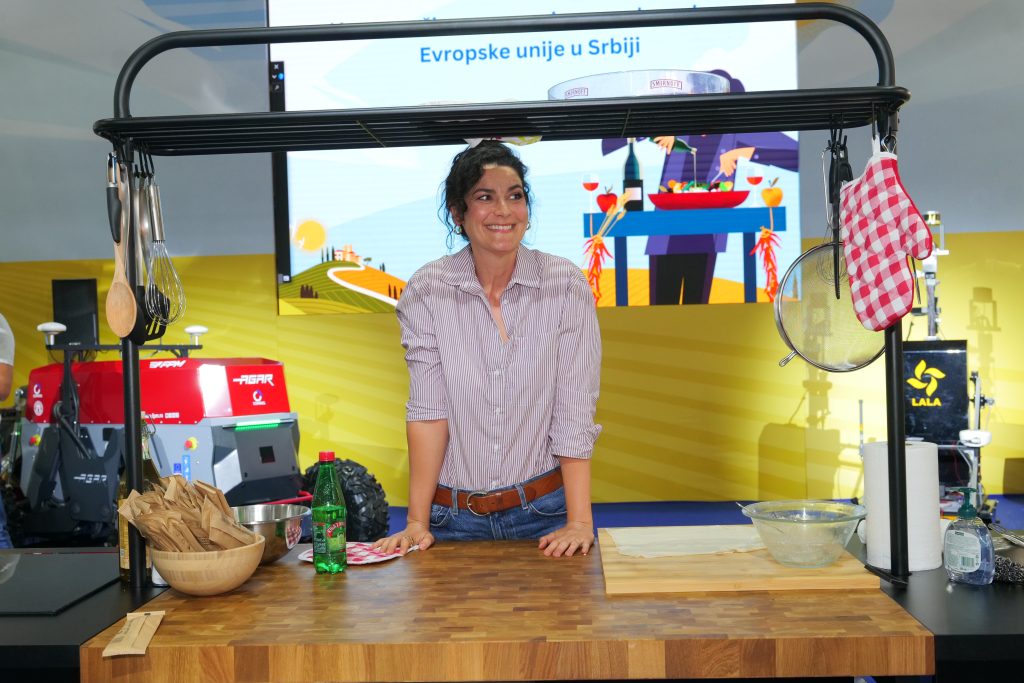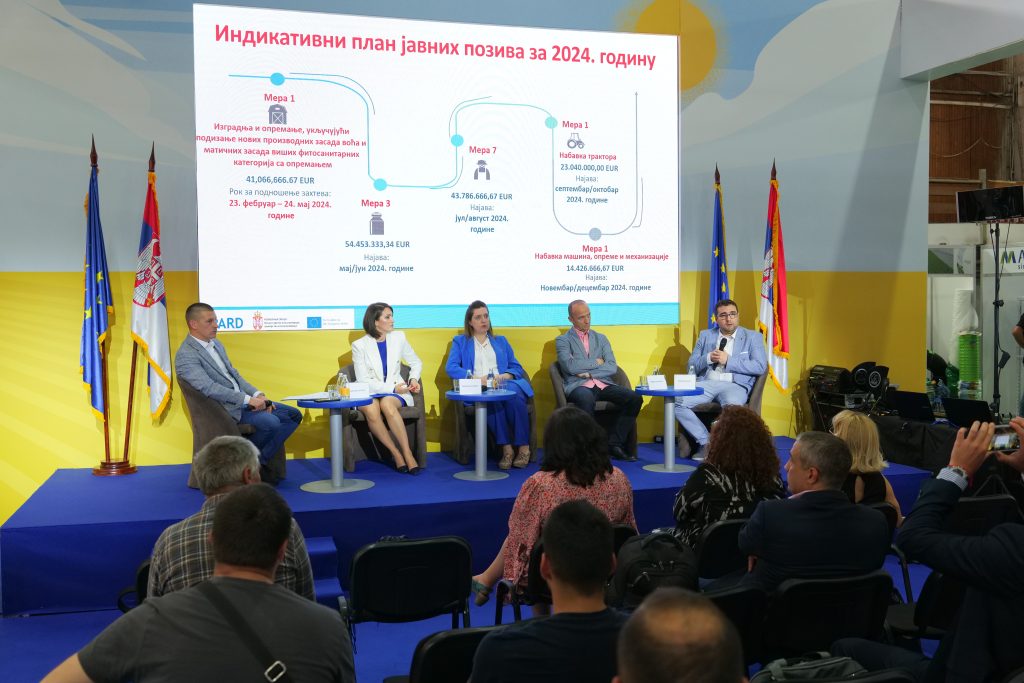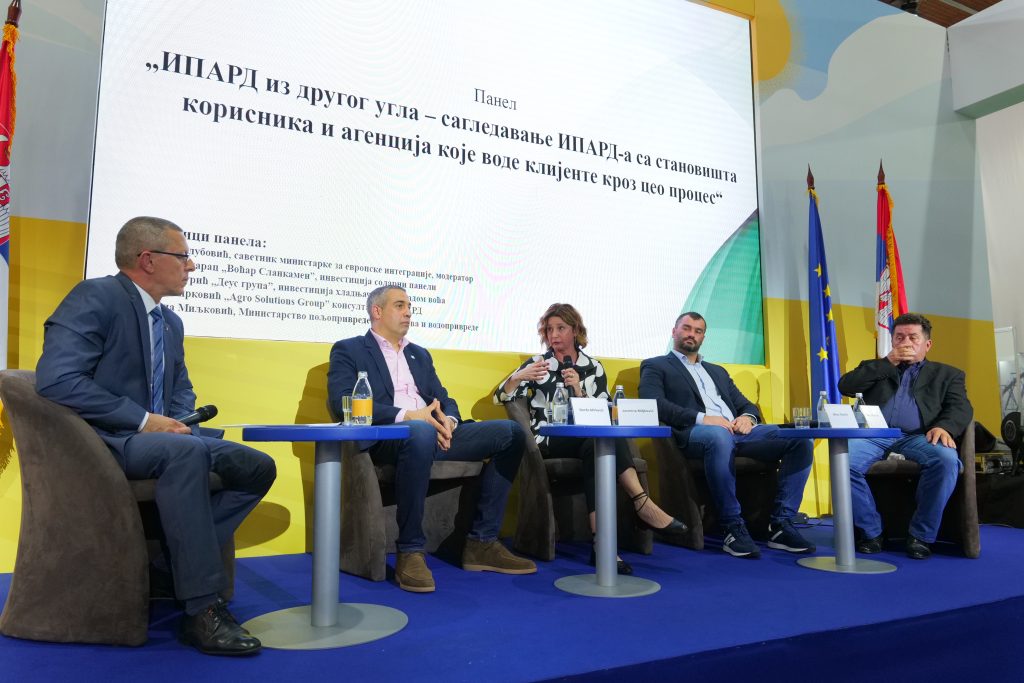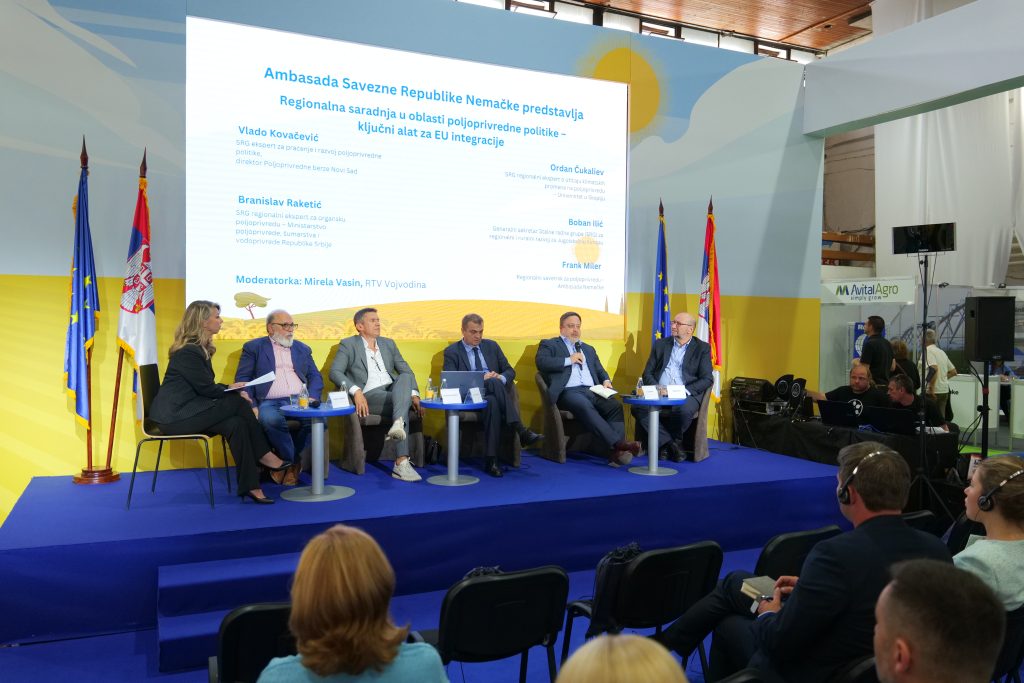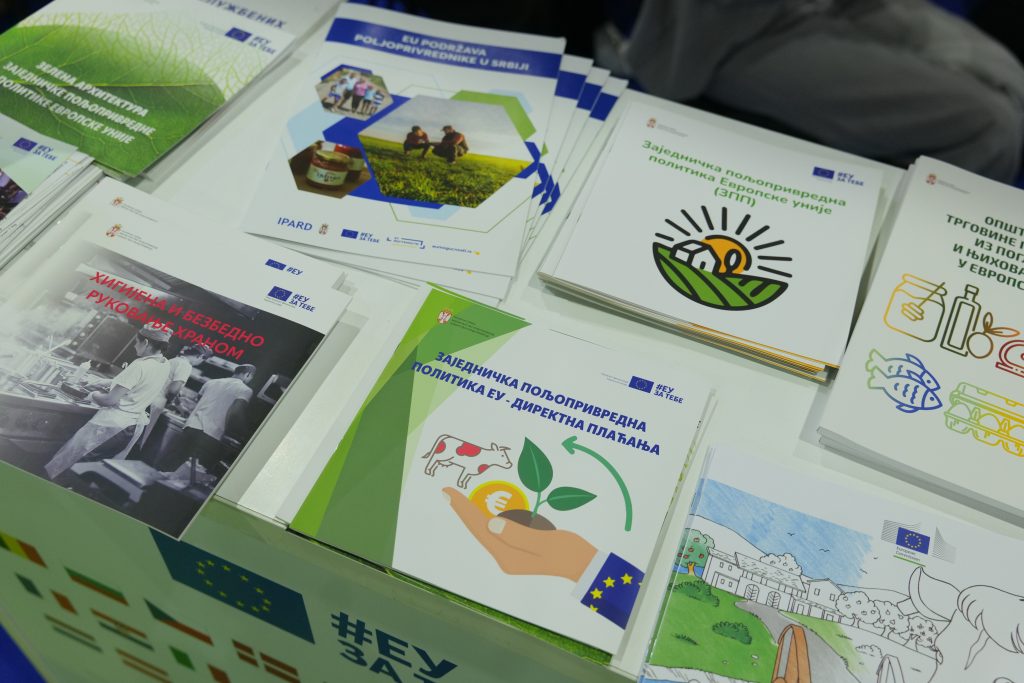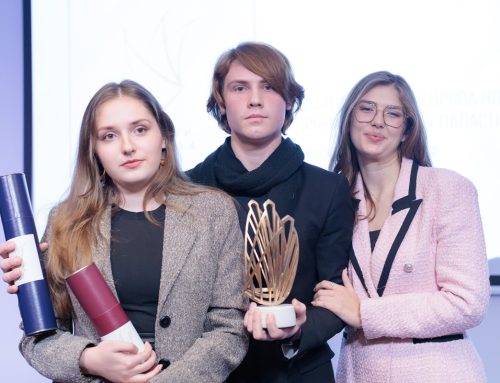EU Kitchen smelled divine at the Fair
The second day of the Agricultural Fair in Novi Sad passed marked by the EU cuisine!
German sausages, Polish pierogi and Balkan gibanica – prepared live in the EU Pavilion. Lunch for the visitors was prepared by Plamena Halacheva – Deputy EU Ambassador to Serbia, German Ambassador to Serbia – Anke Konrad, and with the help of a chef, the guests were served by the Polish Ambassador to Serbia – Rafal Pawel Perl.
In addition to European food, visitors could also hear about the experiences from the European Union, from numerous experts, who enriched the programme of the EU Pavilion. This is how robots and sensors, as well as modern technologies used in agriculture, were presented, and scientists from the company Coming from Niš and from the Novi Sad Institute Biosense spoke about them. Cell farming and laboratory meat were also discussed.
Workshops on IPARD funds again caused great interest – users who successfully obtained IPARD grants shared their experiences with the audience, and experts from the Ministry of Agriculture and the Directorate for Agrarian Payments provided more information on applying and specific measures.
“The process of getting to IPARD III incentives has been greatly facilitated compared to previous cycle. For example, the number of on-site controls has been reduced, and there is no verification of the origin of the goods. The emphasis is on the speed of processing requests”, said Jasmina Miljković from the Ministry of Agriculture, Forestry and Water Management.
“IPARD is a great opportunity to improve business. My experience was very good. The regulations are clear, and the approach to IPARD must be serious, believes Mitar Deurić, a user of IPARD funds.
Regional cooperation
Also, an important part of the programme was the panel Regional cooperation in the field of agricultural policy – a key tool for EU integration, organized by the Embassy of the Federal Republic of Germany.
On that occasion, the Secretary General of the Standing Working Group (SWG) for Regional and Rural Development for Southeast Europe, Boban Ilić, noted that the Western Balkan countries have harmonized around 70 percent of the legislation with the EU concerning wine, while Serbia has made the greatest progress in harmonizing the legislation related to the common agricultural market.
Branislav Raketić from the Ministry of Agriculture, a regional expert for organic agriculture, spoke about organic production in the context of regional cooperation. He believes that the non-governmental sector can play an important role in this process, which, using digital marketing as a tool, can help small producers reach customers.
“When it comes to organic production, it is important to buy from someone you know. That is why digital marketing is important, to bring producers closer to consumers”, says Raketić.
Regional connection, in agriculture, is also evidenced by the guest appearance of professor Ordan Chukaliev from the University of Skopje who spoke about the negative impact of climate change on agriculture – in its broadest sense. The soil is very exposed, it loses its health and becomes vulnerable, says the professor.
“The impact of extreme heat, caused by climate change, appears to be the greatest risk to livestock welfare and productivity”, Chukaliev said.
Vlado Kovačević, Director of the Novi Sad Agricultural Stock Exchange, noted that the ultimate goal of agricultural policy is to distribute limited resources as far as possible. Its goals are very complex, perhaps even more complex in our region.

